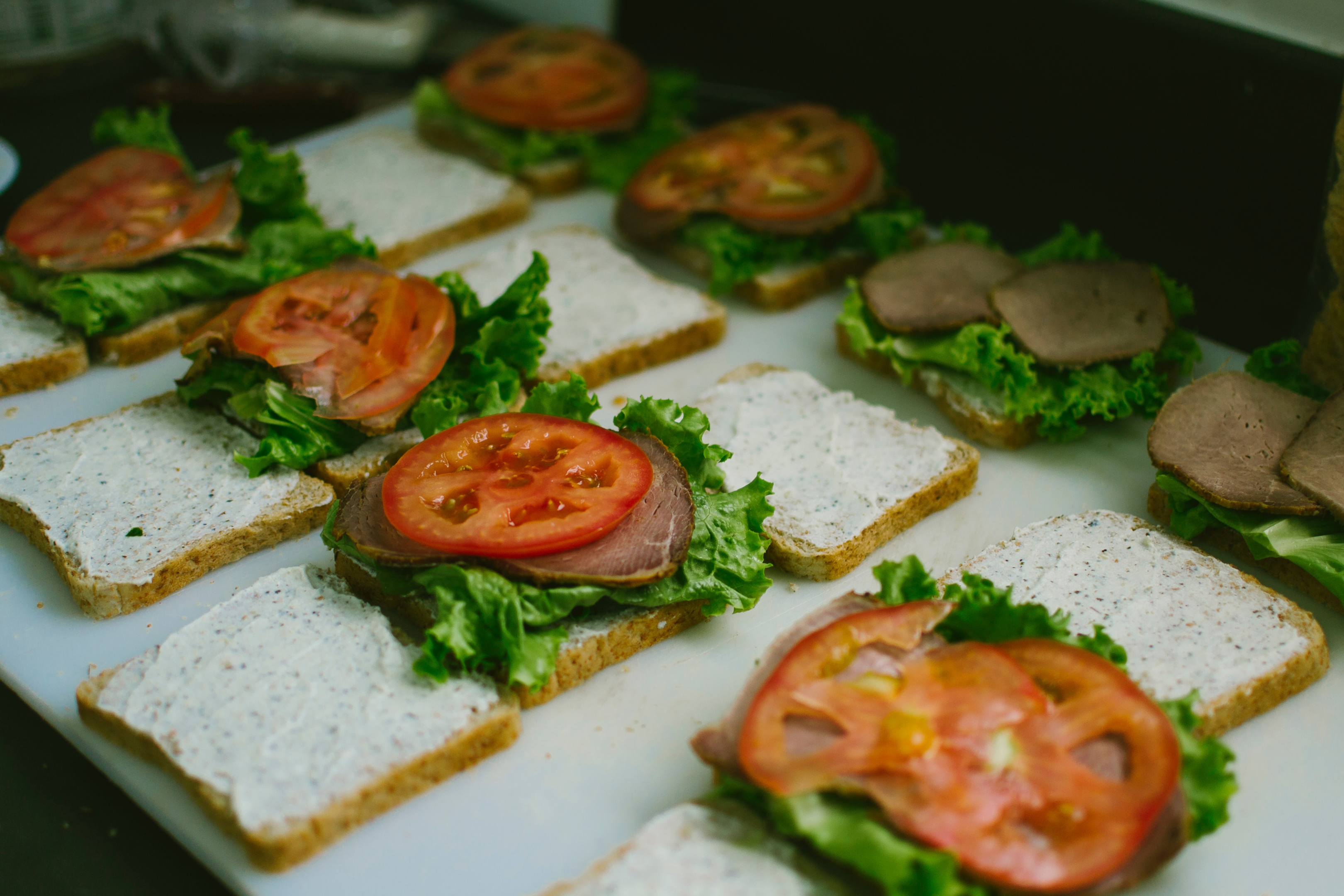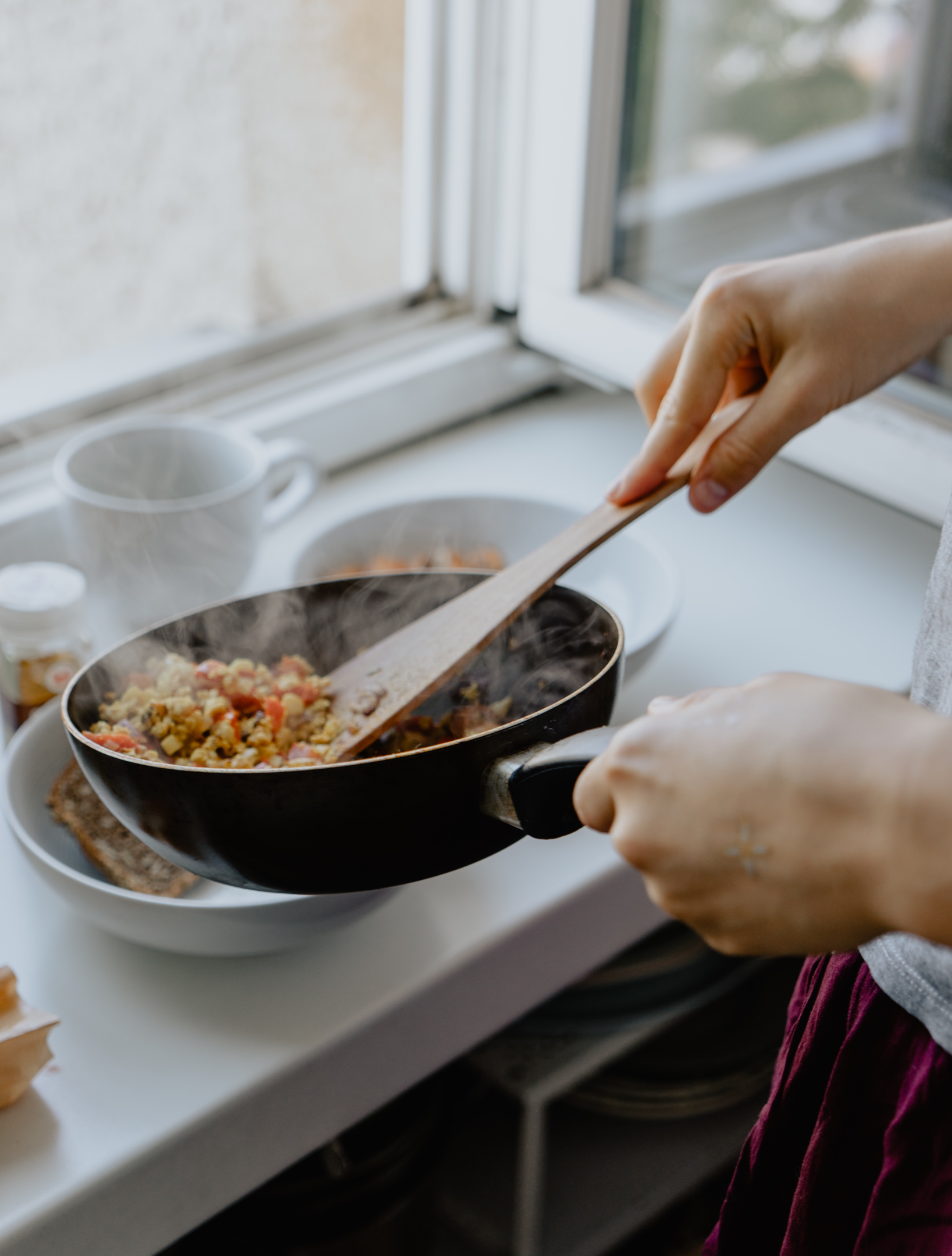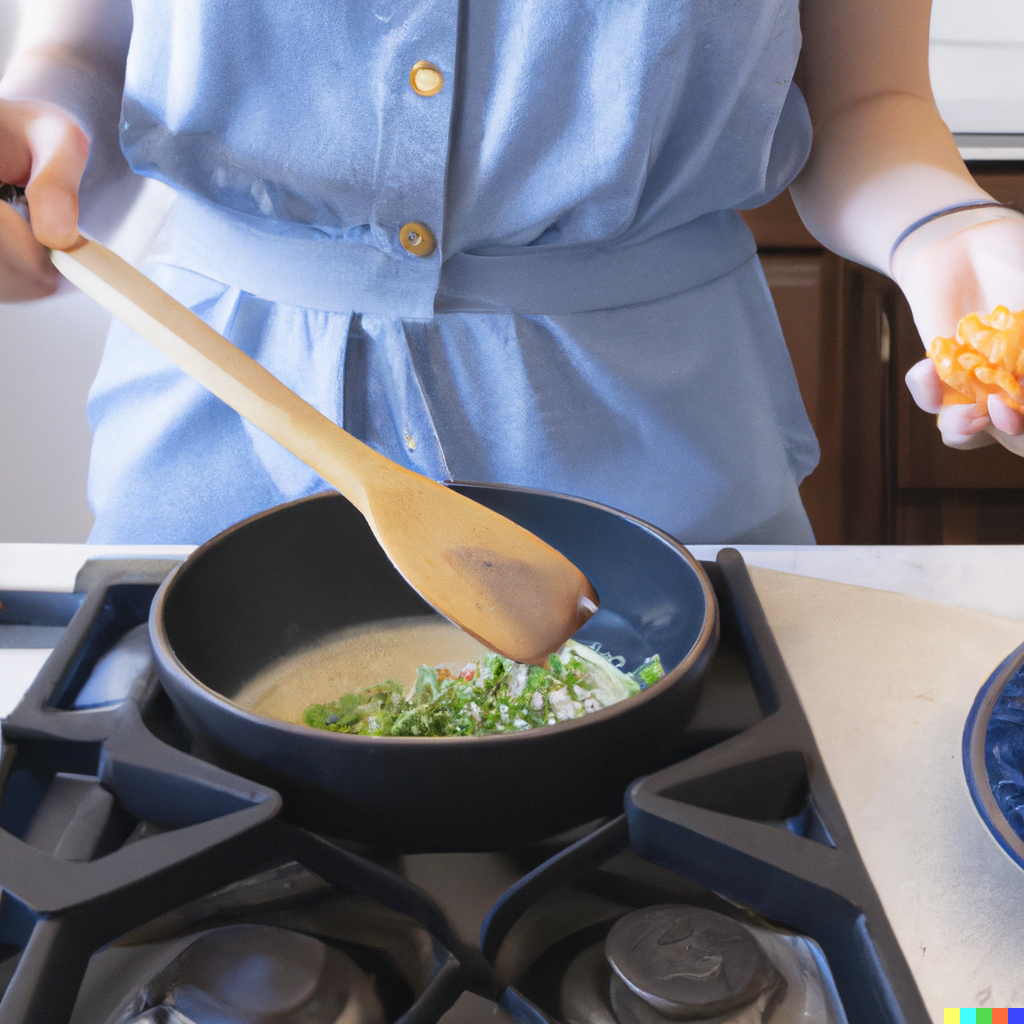College life is one of the best chapters in a person’s life. It’s a time filled with adventure, unforgettable moments, accomplishments, and learning—about the world and yourself. It can also be a challenging time branching out on your own, especially when it comes to budgeting your money for food expenses.
There are multiple ways to save money on food during college. Yes, you can always eat at cheap fast food joints and kiosks near and around your campus, but it’s not always the healthiest alternative. Also, even reasonable food costs pile up, and you’ll suddenly realize you are spending much more on food than you originally intended.
In a 2020 study about the association of cooking at home with a healthier diet, it is still much healthier to cook food at home regardless of socioeconomic status. Although the relationship between cooking at home and health is stronger among high-income adults, the correlation is still there, so being a “broke college student” isn’t an excuse as it’s certainly doable.
So, go make food at home or in your dorm room. Many recipes around the internet are cheap and quick but also healthier, and healthy food choices can go a long way in college.
Making Your Own Food at Home
When you make your own food, you are in control. You are responsible for how much you’re spending and how much nutrition you get from it. This control means better finances and academic performance as you slowly tailor your daily needs more effectively.
Healthier Option while grocery shopping for fresh veggies

If you’re someone who’s calorie counting or who generally monitors what food they’re eating, you’ll see why making food at home can be an essential factor in better health and lifestyle.
A healthy lifestyle leads to better academic performance. A 2020 study on the influence of eating habits on the academic performance of university students showed that college students who regularly ate breakfast (at least five times a week) were reported to have a higher Grade Point Average (GPA) compared to others who consumed less.
In the same study, college students who frequently ate fast food (7 times the week before) had poorer GPA scores than those who ate less (less than four times or none) fast food. The study effectively shows how important a healthy and balanced meal could affect your studies and, of course, your future.
While your brain's performance largely depends on internal factors like genes, external factors such as food and nutrition play an essential role. A 2021 study on the role of food and nutrition for brain performance reports that proper diet and nutrition have been linked to better mental health and cognitive function, as it affects five essential functions of our brain:
- Brain development.
- Signaling networks and neurotransmitters in the brain.
- Cognition and memory.
- The balance between protein formation and degradation.
- Deteriorative effects due to chronic inflammatory processes.
Remember, healthy food doesn’t have to be complex or expensive—it’s all about finding the proper nutrients for your body’s physical and mental needs. In other words, eat for what the day demands of you.
Swamped with school work and need more energy for the day? Eat lots of carbs. Need to ace an important test? Consider eating foods rich in flavanols like chocolate or fruits loaded with Vitamins E, A, and C, such as vegetables, citrus fruits, and berries.
However, you should never forget that these foods aren’t magic and don't instantly make you smarter or perform better academically. You should eat these foods regularly and, of course, you still need to study and put in the time and the work to perform better in school.
It Saves Money
When you’re in college, you’ll understand how essential budgeting expenses are. From the cost of books, services, leisure, and, of course, food, expenses can be overwhelming to balance for a college student who’s still getting a feel for the newfound independence and responsibility. That’s why making a budget plan helps, especially when it comes to food.
Saving money on food as a college student isn’t as straightforward as it can be. Certain factors should also be considered, such as peer pressure, social activities, and other unavoidable factors that could affect how you budget your food expenses as a college student.
Some of these factors can be inevitable—after all, you’re in college to learn about the world, including society and life. You’re not in college just to save money; you’re also there to have fun since everybody needs to blow off steam every once in a while from the mounting pressure of school work, jobs, and expectations from yourself and others.
However, you should also prioritize carefully planning food expenses to make the most out of your college experience. So, by cooking at home, you’ll see the difference in the amount of money you’re saving, which you can use for other important things such as learning materials or for just having fun.
When cooking at home, as a college student looking to save more money, you need to consider this an investment. Naturally, you’ll be buying lots of ingredients in bulk which are usually more expensive at first, and you’d also be spending on kitchen tools and equipment, which can depend on how much you already have and how much you need to buy.
But, over time, you’ll notice that you’re not spending as much since you can just cook delicious and healthy food at home for days to weeks without spending a single cent. Yes, it takes a little time off your hands, but it is worth it. Again, food doesn’t need to be complex; it just needs to be healthy and delicious, which isn’t impossible. So I’m sure you’ll do great.
Many College Students Choose to Buy their Meals Instead of Making One

Even with the benefits of cooking at home, many college students still choose to buy takeout and pre-made food. In fact, a 2021 study by the U.S. Department of Agriculture on characteristics associated with cooking frequency among college students stated that only 45.7% of college students often cook, 40.3% sometimes cook, and 14% never cook at all.
This behavior could stem from many factors—they might come from families who didn't cook very much at home, maybe they do it out of convenience, and maybe buying food is more cost-effective for them.
While these factors aren’t entirely wrong, as buying could be more convenient—or the investment in buying tools and equipment can be too much for a college student. It’s important to look at each factor's long-term benefits and context to incentivize college students to make more food at home.
Also, if a college student comes from a family of people who don’t cook, it might seem that it’s a futile endeavor or they’re simply talentless, which is not a good mindset to have when taking on this endeavor. Cooking takes skill, and skills are learned and honed, so go out there and cook.
Here are some factors that influence home cooking in college students and why college students prefer to eat outside.
Family Eating Habits

Over the years, there has been a growing trend among Americans to buy food away from home. A report summary in 2018 from the US Department of Agriculture on eating habits stated that “spending on FAFH (food away from home) surpassed spending on FAH (food prepared at home) for the first time in 2010, increasing its share of total food spending from 44 percent (30 years prior) in 1987 to 50.2 percent in 2010.”
The same report also states that food frequently consumed away from home has fewer nutrients. Compared to food produced at home, which is rich in fruits and vegetables. Also, food away from home usually contains higher calories, fat, and salt and is linked to obesity.
Families heavily influence a person’s life and the way they think. They can shape our lives in many ways, especially when it comes to our eating habits. If you come from a family more inclined to buy their food outside instead of making it at home, you might also be more willing to do the same.
There could be a handful of reasons why. From busy family members, families that just aren’t that inclined to cook, to families that just want something convenient. These factors can affect a college student too, which is a detrimental habit if you’re looking to save more money on food expenses.
So, as a college student, consider breaking away from the norm and simply cook food at home. The benefits that it gives long-term are substantially better, not only for your finances but for your health as well. It can also be good practice and training for when you finally live independently once you graduate from college.
Buying food saves more money

Cheaper doesn’t always mean better when it comes to food, as some of the cheap food items bought outside your home can lack a substantial amount of nutritional value. As a college student burdened with constant physically and mentally straining tasks, food is essential to helping you manage your daily activities.
A lack of nutrients can be detrimental to your brain development and cognitive function, affecting your academic performance. Also, if you’re a student-athlete, you’ll need to be physically fit to perform better in your sport. And cooking food at home immediately solves all these problems.
Buying food away from home can also stem from societal factors, such as purchasing food outside can seem more “fashionable”. This phenomenon basically means that if you buy food from popular restaurants you’ll look more trendy, mainly attributed to social media use by posting expensive food and drink. It’s important to note that photographing food can change your eating habits. For example, in a study that looked at what happens when the “camera eats first,” mealtime photographers were found to be more likely to eat in response to the sight of food, rather than to internal cues of hunger.
Joining this trend to photograph and document your experience on social media isn’t necessarily a bad thing, but if you’re looking to save more money, it’s better to just cook at home and save your money for other necessities or outings that are truly special occasions. But, if you’re still looking to “flex” food that you’re eating, why not cook delicious food, plate it beautifully, and show that instead? You would be be “flexing” about your meal and your cooking skills while treating others with a beautiful image to enjoy.
While buying food is a better short-term alternative, your investment in nutrition is also an investment in your academic performance and body. So, consider buying food outside only when necessary, such as social activities like dates and friendly gatherings. But when you’re at home, don’t look at your phone to order something—go to your kitchen and cook!
Buying food is more convenient
Again, this also depends on the context—mainly about the food you’re making. If you’re strapped for time and just couldn’t squeeze cooking into your schedule, you might be cooking the wrong type of food. Remember that the primary purpose of food is sustenance, and while cooking amazingly complex food tastes (and feels) great, this could, of course, be very time-consuming.
So, cook quick, easy, healthy meals like salads or eat more fruit. If you’re craving a little more complex, incorporate meal planning and meal preparation into your schedule so that when you have the time to cook, you can cook excellent meals for the week and store them in your fridge for easier access in the future. Just heat them up, and voila!
This can make home-cooked meals more convenient instead of buying food away from home. It could even potentially be more convenient. When you cook at home, you won’t have to wait for delivery times or go outside your house just to eat.
General Tips to save money on college student food
- Cook meals at home - Again, I can’t stress enough how much cooking at home can keep your finances stable.
- Bring your own food to campus instead of fast foods - Try to incorporate meal prep into your schedule and make food suited for portability, like a sandwich or wrap for breakfast food.
- Plan your meals ahead of time - Plan your food expenses well. While cooking at home is better, find easy recipes online, include food expenses for social activities as well. As long as there’s a plan and a budget, it’s best to not go over your limit and stick to your plan easy meal ideas for it to be more effective.
- Buy in bulk when items are on sale - When food items are on sale, buy them in bulk and store the rest in your refrigerator. Doing this can motivate you to cook more at home since you already have many ingredients for those easy meals.
- Find student discounts at local restaurants and grocery stores - As a student, you’ll have to be more vigilant about student discounts which you could take advantage of to save a little more money. Consider keeping coupons as well for deals in a cinch.
- Buy food in bulk - When you get a chance, go to your local Costco or Sam’s club, which specializes in wholesale retailing. You’ll find great bargains for groceries if you buy them in bulk instead of individually in convenience stores or restaurants. Cook large batches of the same food and freeze them as meals for the week.
Great weeklong foods are soups, curries, casseroles, and stir-fries, with fresh fruit on the side very filling meal, which are easy to prepare and portion.
- Don’t go shopping on an empty stomach - Hunger and grocery shopping don’t mix well since you’ll pretty much disregard your grocery list and buy junk food unnecessary that might satisfy cravings from hunger. So before shopping—eat healthy.
Conclusion
College is one of the most remarkable experiences that a person can have in life. It’s filled with unforgettable moments and challenges which could shape you into becoming a better version of yourself as you continually move in a moment of self-discovery. So, don’t forget to get the most out of it and enjoy the experience.
However, keep in mind that the college experience could also be very costly, especially when it comes to food. So, remember to be mindful of your budget and that you can always lighten the financial burden a bit by cooking at home. The extra money you saved from cooking at home could be what helps get you through the next exam without as much financial worries weighing in the back of your mind. Or, it could be the ticket to more enjoyable adventures you’ll remember long after your college years are over.
Frequently Asked Questions (FAQs)
What kind of food do college student eat
Well, it depends on the college student in question! Some students are all about the Ramen noodles and microwavable mac & cheese, while others are actually quite particular about their eats. Personally, I was always a big fan of the Dollar Menu at McDonald's - you can't beat those prices! But I know some students who would never be caught dead eating fast food. So it really varies.
In general, though, I think most college students eat pretty similar things. We're all broke AF, so we're always looking for the cheapest and easiest option. And let's face it - often times that means eating less than healthy foods. Chips and ice cream are pretty much staples in a college student's diet
How can college students afford groceries
There are a few things that college students can do to save money on groceries. First, try to buy in bulk whenever possible. This can be done by shopping at stores like Costco or Sam's Club, or by buying items like rice, pasta, and cereal in large quantities.
Another way to save money on groceries is to cook meals at home instead of eating out. This can be done by planning ahead and creating a weekly meal plan, or by cooking simple dishes like soup or grilled cheese sandwiches. And finally, try to avoid buying processed foods and opt for whole foods instead. This can be done by shopping at farmer's markets or local grocers, and by cooking meals using simple ingredients, pre cut to save time on those side dishes when you're writing a paper and are on a time crunch and need that quick meal. For those busy students easy mac will help with those energy level.
What's the cheapest meal to make
The cheapest meal you can make probably a PB&J sandwich. All you need is bread, peanut butter, and jelly. You can also add some bananas or applesauce to make it a little more nutritious. If you're feeling really cheap, you can always just eat the jelly straight out of the jar. For those home cooked meals it would be great to have a slow cooker and put some chicken breasts with some veggies inside. After a few hours you will have a few meals ready to go.
How can college students afford healthy food
It can be tough to afford healthy food on a college budget, but it's not impossible. Here are a few tips:
1. Make a grocery list and stick to it. This will help you stay within your budget. Get some frozen meals. frozen broccoli frozen vegetables and frozen meatballs.
2. Plan meals around cheap, healthy ingredients like beans, eggs, sweet potatoes, pasta noodles and whole grains. Get some meal ideas, instant oatmeal , baby carrots and trail mix, granola bar some snacks you can carry with you.
3. Shop at farmers markets many health benefits for cheaper prices on fresh fruits and vegetables.
What type of breakfast do college students eat
College students notoriously eat unhealthy breakfasts loaded with sugar and processed carbs. This type of breakfast leaves them feeling tired and sluggish, and it's no wonder many students opt for caffeine-loaded energy drinks to make it through the day.
A better option would be a balanced breakfast packed with protein and healthy fats. This type of breakfast will help you feel energized and focused throughout the day. Some good options include eggs, yogurt, pasta salad, whole grain bread with shredded cheese, oatmeal, or whole grain toast with peanut butter, feta cheese or avocado.